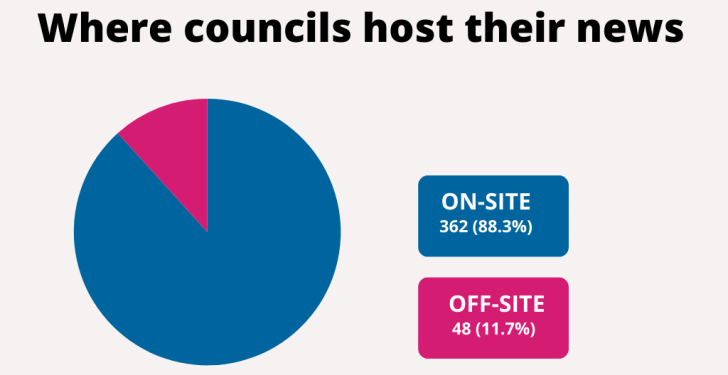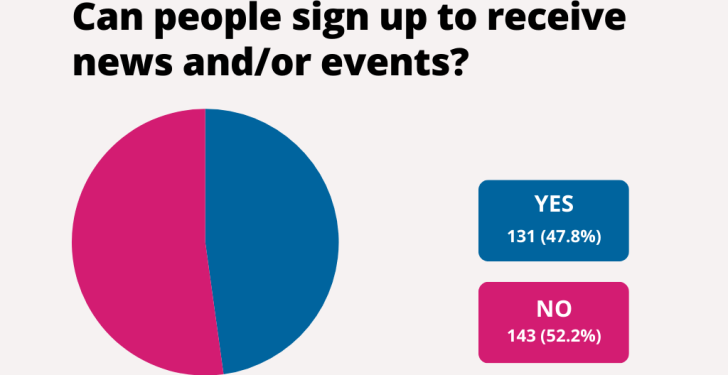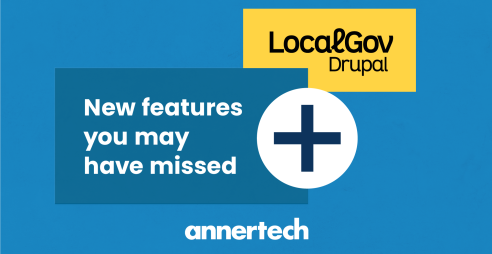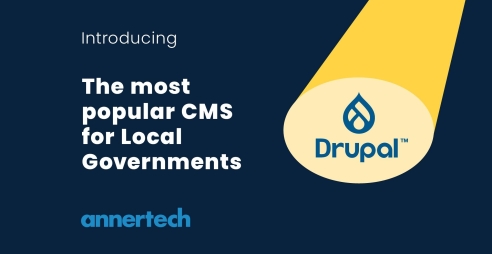How do councils treat news and events online? We take a look
We teamed up with Digital Health Check to see how two important services – news and events – are being treated by councils. The research results are in. And they may not be what you were expecting.
We’re always looking for ways in which to make Drupal and its related products such as LocalGov Drupal better. That’s why we teamed up with Digital Health Check to research how councils treat their website content around news and events.
Both news and events are directly related to the services councils offer, so they are important cogs in the wheel, helping councils to inform and educate people on what’s happening in their area.
The research aimed to see how both content types are being used by local government.
The research
The research was carried out by Colin Stenning, Director of Digital Health Check, and Stella Power, Annertech’s Managing Director, and involved 410 councils across Ireland and the UK.
News sections allow local councils to keep the public up to date with important information. Colin and Stella looked at things such as whether there were any differences in the way news sections were hosted, how long news articles were kept, how easy it was to search these articles and how far back users could go, as well as how councils sent out news.
They also looked at events calendars, and whether councils made use of them. If so, were they being used effectively and who could access these calendars?
The results
All the results are available on the Digital Health Check website, but here are some of the highlights:
News

The research shows that the majority (88.3%) of the councils in the UK and Ireland host news onsite.
- News is an important and popular service that local councils offer the public, yet only 17% of councils have news on their home page.
- The life span of news articles differs from council to council, but generally they don't have a long life span and archiving seems to be hit or miss. The majority of councils only choose to keep and display news for between one and two years. However, there is still a significant number of councils who choose to keep news for longer, going back 10-15 years. Around half the councils enable people to filter news articles by date. This is helpful, especially when councils keep news for a long period.
- 361 councils have their news section on-site (88.3%) and 48 have them off-site (11.7%).
- Nearly half of the councils (about 48%) enable people to sign up to receive news by email in the form of a newsletter.
Events

The research shows that 52% of councils in the UK and Ireland don’t allow people to sign up to receive news and/or events.
Although events are important to local councils, both in terms of service, communication and a public relations mandate, their presentation on council websites also seems to be hit and miss. This is a potentially great service that constituents are missing out on, but it will also take dedication and resources to ensure that it is managed correctly.
- Council events calendars are not widely available on council websites. Only 17% of councils have events on their homepage, and about a quarter of the councils have a council events directory.
- Several councils have an events calendar which has no events. This could be because maintaining a council events calendar is challenging or because some councils do not have the resources to maintain them or see them as a priority.
- Nearly 20% of councils allow users to add events, but only 6% allow users to register for events.
Conclusion
This research brought some expected – and some unexpected – issues to the fore.
Although news is regarded as important, and 88% of councils host their news onsite, only 17% of councils feature news on their home pages. This could indicate an issue with website content management, or perhaps it was a design decision.
We found it surprising that such dynamic and regularly updated content wouldn’t have at least a featured space on the home page.
Also surprising is that more than half of the councils (52.2%) didn’t have the option for people to sign up to receive news and/or events.
The sporadic use of events calendars could indicate a lack of suitable options that are compatible with council CMSs. Or it could be due to other internal issues such as resources or priorities.
Either way this could potentially be a great service for council website visitors if it is kept up to date, and could be a missed opportunity.
We’d be interested in hearing from councils on our research. It would be helpful to have their insights on the types of content they have on their websites and, probably more importantly, the types of content they don't have but would like to have.
Any thoughts about this research?
We are happy to answer any questions you may have about the research we've done, and also to get your thoughts around council websites. We'll be conducting research as an ongoing project, so if there's a topic you'd like us to explore, just let us know.

Alison Visser Head of Content
After more than two decades in journalism, Alison now collaborates with Annertech's clients to ensure that their content is the best it possibly can be.

